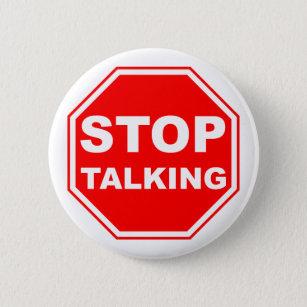Understanding how NOT to demonstrate credibility is as important as appreciating what works well. I was reminded about this recently when I had the mis/fortune to encounter someone who managed to sabotage any credibility whilst fully believing he was the best leader in the room. Needless to say, this individual was too arrogant to recognise he could do better.
However, this is an opportunity to share my observations with you, the reader, so you are aware of these mistakes.
We all cope with managing nerves and difficult situations in a variety of ways. For some people, being over arrogant could be a way of trying to disguise this along with associated traits. But sadly this can backfire with the audience switching off or respecting you less. This is one of a number of ways we might NOT demonstrate credibility. Here are some points to be aware of and to work towards avoiding.
Arrogance
This was something our speaker had in buckets! He was fully invested in how amazing he was; how much better he was than anyone else in the room AND dare I say it, his sense of entitlement. We live in a different world to the one he grew up in. It is no longer a given right that if you are ex-public school that you will instantly be respected and listened to. It no longer works that if you are a middle aged man, people will immediately trust, listen and respect you. Now you have to demonstrate why others should listen to you. This includes understanding who you are speaking to.
Over speaking
This is a trap many people fall into when they are nervous or have an overinflated opinion of themselves. For people who get very nervous, or lack confidence often over explain to overcompensate. This might include BS, irrelevant information and over inflating one’s worth. Although it could be counter intuitive, saying less has more impact.
Lack of self awareness
It will come as no surprise that this individual was completely unaware of his personal brand and how others perceived him. Instead of focusing on his self improvement and increasing his knowledge, he felt his previous experience only was relevant. Because he is stuck in the 80s and 90s, and he doesn’t listen to others, he was sadly thought of as a ‘dinosaur’. If only he was more self aware and reflected on any conversations or feedback, his credibility would not be damaged. Always remember any conversation is two way.
Under planning, so there was no structure
This individual demonstrated he hadn’t planned what he was going to say. He showed how dangerous it is turning up without preparing. When you are so obviously ‘winging it’, the audience loses faith in you. They are frustrated that you can’t be bothered to do some preparation. This includes, what you are going to say and structuring it so there is content of value for the audience. Think how frustrated we were when we saw a certain ex-Prime Minister spoke without any preparation and how it discredited him in the eyes of many. You have been warned.
A lack of “Reading the Room”
Every piece of communication is two way and we should always be aware of the audience. If their eyes are glazing over; they are looking bored, fidgeting or especially scrolling on their phones – and not just one person, are clues that they aren’t engaged in the conversation. If the other person is trying to say something and you keep on talking – ignoring both verbal and non-verbal communication, you should stop and engage in a two way conversation.
Apparently I have missed out on the opportunity to attend a session where he will share his secrets to delivering speeches to corporate organisations. Having experienced conversations with him as well as hearing previous talks where he rambled and overstayed his welcome, I will give this one a miss.




 Susan’s birthday prize draw 2023
Susan’s birthday prize draw 2023